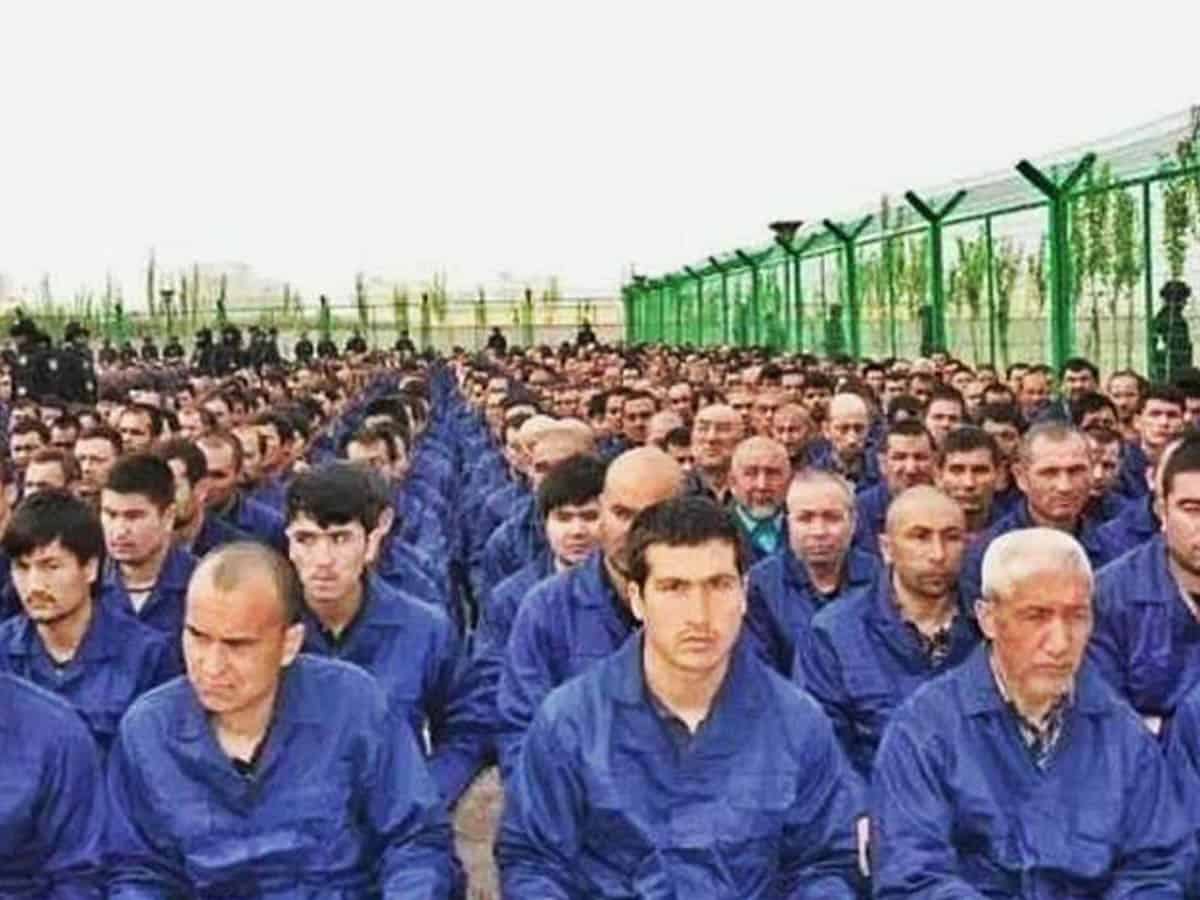If the Holocaust Was Bad and Slavery in America Was Bad then Why Are Democrats Okay with Uyghur Muslim Internment Camps with Over One Million People in Forced Labor?
The industry’s solar energy supply chains are heavily reliant on Xinjiang, a Chinese region the US government and others say is the scene of genocide against the local ethnic Muslim Uyghur inhabitants
MORE PROOF THE MAINSTREAM MEDIA, LOCALLY AND NATIONALLY DO NOT REPORT ALL THE NEWS. THEY ONLY REPORT WHAT THEY WANT YOU TO KNOW AND SADLY EVEN A MAJORITY OF AMERICA’S REPORTERS ARE DUPED.
Democrats love the religion of green but they never seem to mention the 1,000,000 human slaves that are being used to make their green solar panels. Wonder why that is? Almost like the NBA and the sweatshops, they use to create the NBA gear and LeBron’s shoes.
The mass internment of Uyghurs and other Turkic Muslims in the camps has become the largest-scale arbitrary detention of ethnic and religious minorities since World War II. Many media outlets have reported that hundreds of thousands of Uyghurs, as well as Kazakhs, Kyrgyz, and other ethnic minorities, are held in the camps.
Companies and governments pushing for solar energy are confronting a previously overlooked roadblock, according to a new report.
The industry’s solar energy supply chains are heavily reliant on Xinjiang, a Chinese region the US government and others say is the scene of genocide against the local ethnic Muslim Uyghur inhabitants, The Wall Street Journal said.
At issue is polysilicon, an essential ingredient to most solar panels, which comes from this region of northwestern China, where human rights groups and US officials say China runs a sprawling network of internment camps that have held more than 1 million Uyghurs.
Experts in the renewable energy industry say they fear that Xinjiang, which makes about half of the world’s supply of polysilicon, as well as other essential materials, could have links to forced labor.
In recent months, global pressure has been mounting to curb trade with Xinjiang as both the US and the European Union are weighing legislation that could lead to import bans on products from the region, including polysilicon. In January, the US already banned imports on cotton and tomatoes from the area.
China is coming under increased scrutiny for its internment camps for Uyghurs in the northwestern province of Xinjiang.
The Uyghurs are a Muslim ethnic minority in far western China, but Beijing has detained hundreds of thousands of innocent Uyghurs and subjected them to a program that the Communist Party says offers them an escape from poverty and prevents the spread of radical Islam.
Satellite imagery and accounts from the region now show that detained Uyghurs are being put on production lines of factories built within internment camps. They essentially have no choice but to take the jobs and accept orders.
“These people who are detained provide free or low-cost forced labor for these factories,” said Mehmet Volkan Kasikci, a researcher in Turkey who has collected accounts of inmates in the factories by interviewing relatives who have left China.
The New York Times reports:
China has defied an international outcry against the vast internment program in Xinjiang, which holds Muslims and forces them to renounce religious piety and pledge loyalty to the party. The emerging labor program underlines the government’s determination to continue operating the camps despite calls from United Nations human rights officials, the United States and other governments to close them.
The program aims to transform scattered Uighurs, Kazakhs and other ethnic minorities — many of them farmers, shopkeepers and tradespeople — into a disciplined, Chinese-speaking industrial work force, loyal to the Communist Party and factory bosses, according to official plans published online.
Serikzhan Bilash, a founder of Atajurt Kazakh Human Rights, an organization in Kazakhstan that helps ethnic Kazakhs who have left neighboring Xinjiang, said he had interviewed relatives of 10 inmates who had told their families that they were made to work in factories after undergoing indoctrination in the camps.
They mostly made clothes, and they called their employers “black factories,” because of the low wages and tough conditions, he said.
The growing problem of forced labor in Uyghur internment camps should also send warning signs to companies importing goods from Xinjiang.
Hetian Taida, a company in Xinjiang that was shown on a prime-time state television broadcast promoting the camps, recently sent a container of T-shirts to Badger Sportswear, a company based in North Carolina. Still, it was unclear if the Hetian Taida factory shown on TV was within a detention camp or if the specific T-shirts sent to Badger Sportswear were produced by Uyghur inmates.
Ginny Gasswint, an executive at Badger Sportswear, said the company ordered a small amount of products from Xinjiang, and used Worldwide Responsible Accredited Production, a nonprofit certification organization, to ensure that its suppliers meet standards.
Seth Lennon, a spokesman for Worldwide, said that Hetian Taida had only recently enrolled in its program, but stressed that “We will certainly look into this.”



